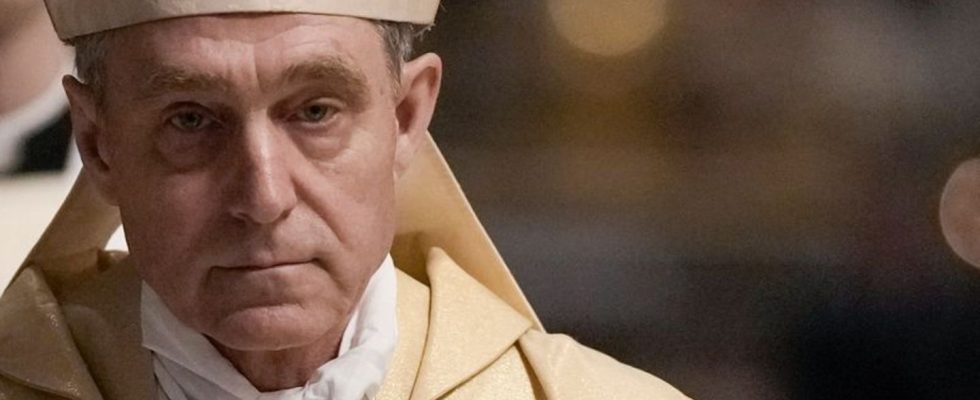Vatican
Pope accuses Gänswein of “lack of humanity.”
A controversial man in the Catholic Church: Archbishop Georg Gänswein. photo
© Andrew Medichini/AP/dpa
Georg Gänswein was always at the former pope’s side. On the day of Benedict XVI’s funeral. the archbishop published a book. That causes criticism.
He was referring to the fact that Gänswein had published a book immediately after Benedikt’s death on New Year’s Eve 2022. Last year, Francis transferred the archbishop back to Germany after many years in Rome without giving him a new task.
In the interview book “El Sucesor” (“The Successor”) by Spanish Vatican correspondent Javier Martínez-Brocal, the Pope also accused Gänswein of spreading falsehoods. “This is very sad,” said the leader of 1.4 billion Catholics worldwide. “But it hurt me that Benedict was used. The book was published on the day of the funeral, which I found to be a lack of nobility and humanity.” The relationship between the Argentine Pope and Gänswein (67) has been strained for many years.
“It would have been better to remain silent”
After Benedict’s resignation in 2013, Gänswein was his closest confidant and looked after the pontiff emeritus for almost ten years. Immediately after his death, he published a book entitled “Nothing but the Truth”, which briefly made it to number one on the non-fiction bestseller list in Germany.
However, there has also been a lot of criticism from other quarters. For example, the German Curia Cardinal Walter Kasper said: “It would have been better to remain silent.” After saying goodbye to Rome, Gänswein, who was born in the Black Forest, is now living again in his home diocese of Freiburg.
In the interview book, Francis – whose real name is Jorge Mario Bergoglio – also reports on the conclave in 2005, in which the then Curial Cardinal Joseph Ratzinger was elected pope as the first German in many centuries. Accordingly, some other cardinals had a plan at the time to block Ratzinger’s election by positioning Bergoglio against him and then pushing through another candidate. The then Archbishop of Buenos Aires also received 40 of 115 votes in the conclave. However, he then declared his resignation, so that the way was clear for Ratzinger. After Benedict’s resignation in 2013, Bergoglio was elected as his successor.

